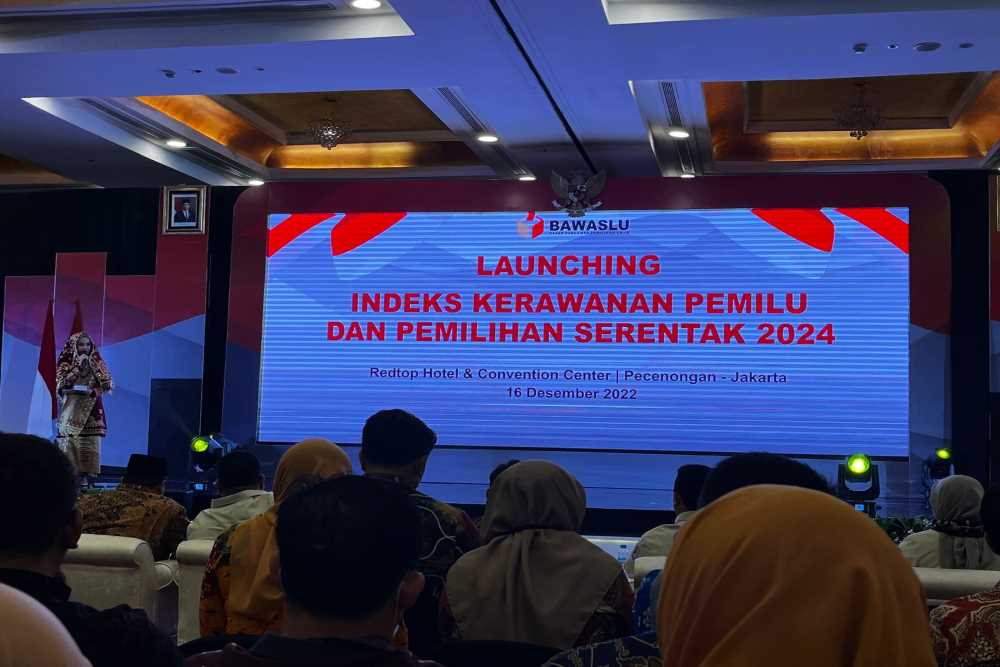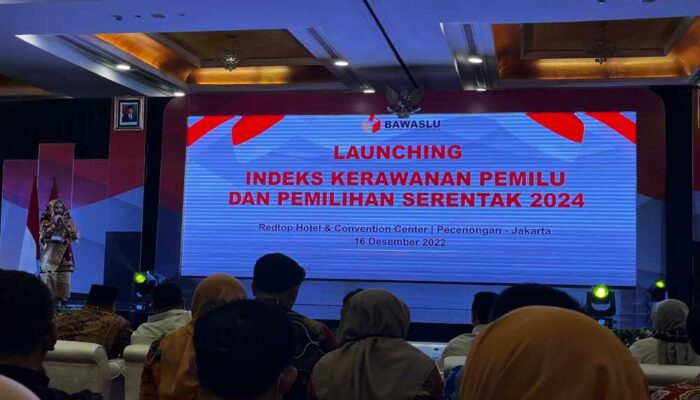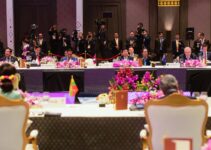Pelanggaran Dalam Pilkada Majalengka 2024, or election violations in the Majalengka 2024 Regional Election, is a crucial topic that raises concerns about the integrity of the electoral process in Indonesia. This election, taking place in the midst of a dynamic political landscape, is anticipated to be closely watched for its potential to shape the future of the region.
The end of daylight saving time in October can have a significant impact on our lives. Find out what the potential consequences of this time change could be here.
The Majalengka region, with its unique socio-economic dynamics and political history, is a microcosm of the broader challenges facing Indonesian democracy. Understanding the factors that contribute to election violations in Majalengka can provide valuable insights into the broader national context.
Android users are excited about the potential of AirTags. Find out if there’s an Android version in the works and what the latest rumors are here.
This analysis will explore the types of violations, their root causes, and the potential impact on the region’s future.
October brings the time change, and it can be a bit of a shock to the system. Get ready for the switch by checking out these helpful tips for adjusting to the time change here.
Overview of the Majalengka 2024 Regional Election
The Majalengka 2024 Regional Election is a crucial event in Indonesian politics, holding significant implications for the region’s development and governance. This election will determine the leadership of Majalengka for the next five years, impacting various aspects of life, from economic growth and social welfare to infrastructure development and public service delivery.
History of Elections in Majalengka
Majalengka has a history of competitive regional elections, with each election showcasing unique dynamics and challenges. In previous elections, the key issues often revolved around economic development, infrastructure improvement, and social welfare programs. The outcomes of these elections have shaped the region’s trajectory, influencing its political landscape and development priorities.
The Texas eclipse is coming! Make sure you’re prepared with the right safety gear. Find out where you can get solar eclipse glasses and learn about essential safety tips and precautions here.
Key Issues and Challenges in Majalengka
The 2024 election is expected to be a closely contested race, with candidates vying for the support of the electorate. The key issues and challenges facing Majalengka that are likely to influence the election include:
- Economic Development: Majalengka’s economy relies heavily on agriculture and small and medium enterprises (SMEs). The region faces challenges in diversifying its economy, creating new job opportunities, and attracting investment.
- Infrastructure Improvement: Improving infrastructure, particularly transportation and communication networks, is crucial for connecting Majalengka to other regions and boosting economic growth.
- Social Welfare: Addressing poverty, improving access to healthcare and education, and promoting social inclusion are key priorities for the region.
- Environmental Sustainability: Balancing economic development with environmental protection is essential for Majalengka’s long-term sustainability.
Types of Violations in the Majalengka 2024 Regional Election

Election violations can undermine the integrity of the electoral process and erode public trust in democratic institutions. Various types of violations might occur in the Majalengka 2024 Regional Election, impacting the fairness and transparency of the election.
The Majalengka Pilkada is coming to a close! Stay tuned for the results and see who will be the new leader of the region. Get the latest updates and analysis of the election outcome here.
Legal Framework for Elections in Indonesia
The legal framework governing elections in Indonesia is comprehensive, aiming to ensure fair and democratic elections. The General Election Commission (KPU) is responsible for overseeing and regulating all aspects of the electoral process, including voter registration, candidate nomination, campaign finance, and election day procedures.
Common Election Violations
Common violations that may occur during the Majalengka 2024 Regional Election include:
- Vote Buying: Offering or accepting money or other incentives in exchange for votes is a serious violation of electoral law. This practice undermines the principle of free and fair elections and distorts the will of the people.
- Campaign Finance Irregularities: Violations related to campaign finance, such as exceeding spending limits, using illegal sources of funding, or failing to disclose campaign expenditures, can compromise the integrity of the election process.
- Voter Intimidation: Threatening or coercing voters to influence their choices is a violation of their right to vote freely and independently. This practice can create a climate of fear and discourage participation in the election.
- Election Fraud: Manipulating the electoral process, such as tampering with ballot boxes, falsifying vote counts, or engaging in voter registration irregularities, constitutes election fraud and undermines the legitimacy of the election results.
Factors Contributing to Election Violations
Election violations are often rooted in a complex interplay of factors, including political motivations, social dynamics, and economic pressures. Understanding these factors is crucial for developing effective strategies to prevent and mitigate violations.
Get ready for chills and thrills this October with Goosebumps! Fan theories are already buzzing about what spine-tingling stories R.L. Stine has in store for us. Check out some of the wildest predictions and theories about the upcoming Goosebumps release here.
Role of Political Parties and Candidates
Political parties and candidates play a significant role in perpetuating election violations. Some parties or candidates may prioritize winning at all costs, resorting to unethical tactics to gain an advantage. The pressure to win, combined with a lack of accountability, can create incentives for engaging in violations.
Columbus Day is a holiday that sparks a lot of debate. Learn about the historical context and the impact of Columbus Day on American history here.
Role of Voters
Voters also contribute to election violations, particularly when they are susceptible to vote buying or intimidation. Economic hardship, lack of awareness about electoral laws, and a culture of accepting corruption can influence voter behavior and contribute to the perpetuation of violations.
Don’t miss the Texas eclipse! But before you head out to witness this celestial event, make sure you’re prepared with the right safety precautions. Get the lowdown on how to protect your eyes and enjoy the eclipse safely here.
Social and Economic Factors, Pelanggaran Dalam Pilkada Majalengka 2024
Social and economic factors can exacerbate election violations. High levels of poverty, inequality, and unemployment can create fertile ground for vote buying and other forms of manipulation. In areas with weak governance and a lack of social cohesion, election violations are more likely to occur.
The Cricket World Cup is just around the corner! Don’t miss out on the excitement and secure your tickets and hospitality packages for the event. Find out more about the available options here.
Impact of Election Violations on the Majalengka Region
Election violations have a significant impact on the Majalengka region, undermining the legitimacy of the election results, eroding public trust, and potentially leading to social unrest.
Consequences for Election Legitimacy
When election violations occur, the legitimacy of the election results is called into question. If voters believe that the election was not fair or transparent, they may lose faith in the democratic process and the government that emerges from the election.
Impact on Public Trust
Election violations can erode public trust in the electoral process and democratic institutions. When people lose faith in the system, they may become disengaged from politics, leading to lower voter turnout and apathy towards civic participation.
Get ready for some serious savings! Black Friday is coming early this year, and you can score amazing deals on tools and home improvement items in October. Find out what discounts to expect and how to get the best deals here.
Potential for Social Unrest
If election violations are widespread or perceived as systemic, they can create a climate of tension and mistrust, increasing the potential for social unrest and instability. Protests, demonstrations, and violence may erupt if voters believe that their voices have not been heard or that the election results are illegitimate.
The upcoming Majalengka Pilkada is generating a lot of buzz. Who are the potential candidates and what are their strengths? Get the inside scoop on the key players in the race here.
Strategies to Prevent and Mitigate Election Violations
Preventing and mitigating election violations requires a comprehensive approach involving election authorities, political parties, civil society organizations, and the media.
The Majalengka Pilkada is happening soon, and voters are eager to know the schedule. Find out when the election will take place and how the process will unfold here.
Role of Election Authorities
Election authorities, such as the General Election Commission (KPU), play a crucial role in ensuring fair and transparent elections. They must:
- Enforce electoral laws and regulations strictly and impartially.
- Provide clear and accessible information about the electoral process to voters.
- Establish effective mechanisms for monitoring and investigating election violations.
- Collaborate with other stakeholders to promote election integrity.
Role of Political Parties
Political parties have a responsibility to promote ethical and democratic elections. They should:
- Educate their members and candidates about electoral laws and regulations.
- Condemn and discourage any form of election violation.
- Promote a culture of respect and tolerance among their supporters.
- Hold their members accountable for any violations.
Role of Civil Society Organizations
Civil society organizations can play a vital role in monitoring elections, promoting voter education, and advocating for electoral reform. They can:
- Train election observers to monitor polling stations and report any irregularities.
- Conduct voter education campaigns to inform citizens about their rights and responsibilities.
- Advocate for legislation and policies that strengthen electoral integrity.
- Work with election authorities to address election violations.
Role of the Media in Election Integrity
The media plays a critical role in covering elections, informing the public, and shaping public opinion. However, media coverage can also influence the outcome of elections, making it essential to ensure responsible and ethical reporting.
Keep your eyes peeled for the latest Android tablets coming out in 2024. This year is packed with exciting new releases, and you can find out what to expect here.
Potential for Media Bias
Media bias can occur when news outlets favor certain candidates or parties, present information selectively, or use language that is biased towards a particular perspective. Media bias can distort public perception of the election, influencing voters’ choices and potentially undermining the fairness of the electoral process.
With October just around the corner, many are wondering if daylight saving time will be ending. The debate continues, and you can find out if the clocks will be turning back this year by visiting this article.
Recommendations for Responsible Media Coverage
To ensure responsible and ethical media coverage of the Majalengka 2024 Regional Election, media outlets should:
- Provide balanced and objective coverage of all candidates and parties.
- Report on election issues and campaigns accurately and fairly.
- Avoid sensationalism and inflammatory language.
- Fact-check information carefully and correct any errors promptly.
- Promote transparency and accountability in their reporting.
Last Word
As we approach the 2024 Regional Election in Majalengka, it is essential to remain vigilant and advocate for a fair and transparent process. By understanding the potential for election violations, their underlying causes, and the consequences for the region, we can work towards ensuring that the election reflects the will of the people and contributes to a more stable and prosperous future for Majalengka.
Quick FAQs: Pelanggaran Dalam Pilkada Majalengka 2024
What are the main political parties competing in the Majalengka 2024 Regional Election?
The main political parties competing in the Majalengka 2024 Regional Election will vary depending on the specific positions being contested (e.g., governor, mayor, etc.). It’s important to consult official election materials for the most up-to-date information.
What are the key issues that are likely to influence the outcome of the election?
Looking for a new tablet? 2024 is shaping up to be a great year for tech lovers. Keep an eye out for the latest and greatest tablets hitting the market soon. Find out what models are making waves here.
The key issues are likely to include economic development, infrastructure projects, social welfare programs, and environmental concerns. These issues will likely be debated by candidates and discussed in the media leading up to the election.
What measures are being taken to ensure the security of the election?
The Indonesian Election Commission (KPU) is responsible for overseeing the electoral process and implementing security measures to prevent fraud and irregularities. These measures may include voter identification procedures, ballot box security, and monitoring of election day activities.









